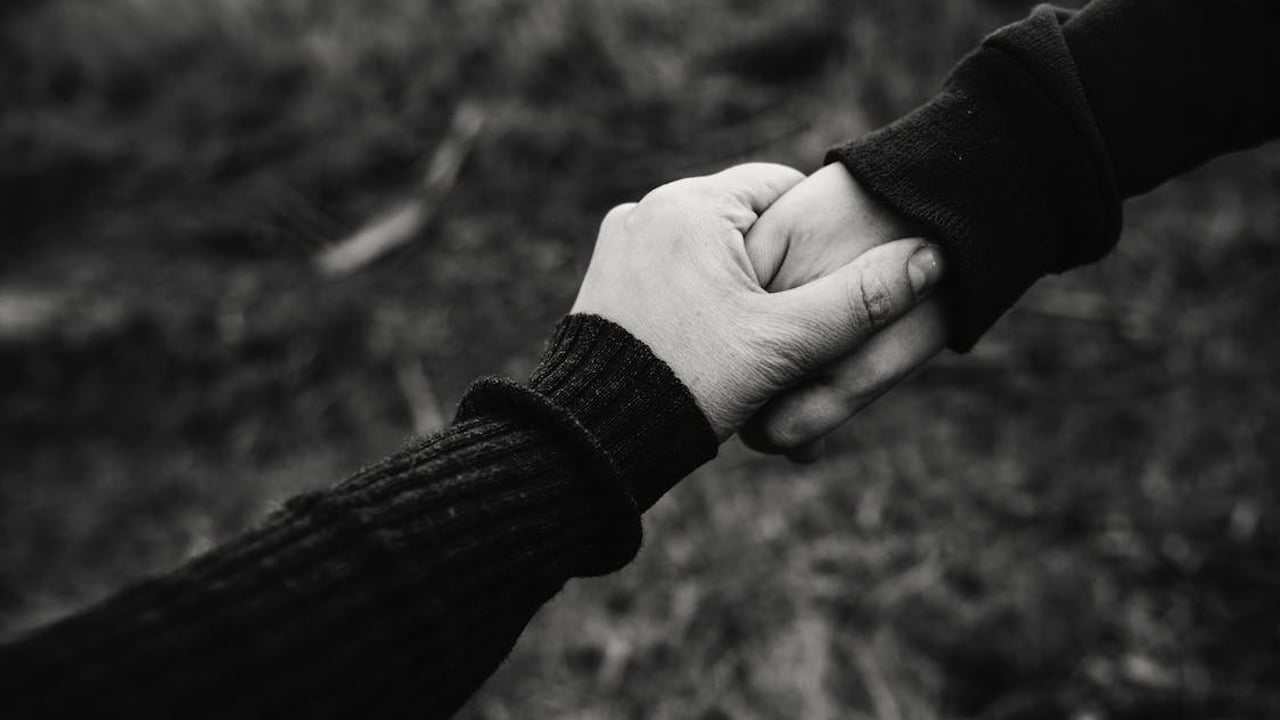Farm Safety Survivor Series

In today’s podcast, Agriland news journalist Rubina Freiberg speaks to Andy Nolan, who comes from a beef farming background in Co. Laois, and Samaritans Ireland executive director, Sarah O'Toole.
In his mid-twenties, Nolan's mental health issues came to a head. About five years later he decided he wanted to get help, and managed to get in control of his mental health. "When I did eventually get help, it was a huge, huge relief".
Click on the video below for a preview of Nolan's mental health journey.
Nolan shares his full mental health journey, including the support he received, in the fourth and final Farm Safety Survivor Series podcast which is now live on the Agriland app, Spotify, Apple or wherever you get your podcasts.
Please be advised that this episode will focus on mental health and will discuss topics including depression and suicide.
Help is available 24 hours a day, seven days a week to anyone who is in distress, lonely, struggling to cope or feeling suicidal by calling Samaritans for free day or night on 116 123 or alternatively via email on [email protected].
In the podcast, Samaritans Ireland executive director, Sarah O'Toole speaks about the support available to anyone struggling with mental health, and issues advice on dealing with loneliness, stress and managing workload.
According to Samaritans, there are things to look out for in yourself when you are finding everyday life hard. You might be feeling tired more often, be feeling emotional, and you might not want to do the things that you usually enjoy right now.
However, struggling to cope with everyday life doesn’t look or feel the same in everyone. "We can’t generalise about how it'll make you feel or act," according to Samaritans.
Signs to look out for:
- Lacking energy or feeling tired;
- Feeling exhausted all the time;
- Experiencing 'brain fog', find it hard to think clearly;
- Finding it hard to concentrate;
- Feeling restless and agitated;
- Feeling tearful, wanting to cry all the time;
- Not wanting to talk to or be with people;
- Not wanting to do things you usually enjoy;
- Using alcohol or drugs to cope with feelings;
- Finding it hard to cope with everyday things and tasks;
- Experiencing 'burn out'.
If you don’t see what you’re feeling on this list, please still get in touch. If you do think these symptoms sound like you, or someone you know, please still get in touch on 116 123, at [email protected], or via letter, online chat or face-to-face.
You don’t have to feel suicidal to get in touch. Only one person in five who calls Samaritans says that they feel suicidal.
Many people struggle to cope at one point or another and going through a range of emotions during this time is common, according to Samaritans.
Practical ways to help yourself cope:
- You are never alone
- These feelings may not last forever
- Identify trigger situations
- There are lots of things you can do to help yourself
If you’ve stopped doing things you usually love, you’re tearful, not eating or sleeping properly, drifting from people close to you, taking alcohol or drugs to cope or self-harming, then talk to Samaritans, or someone you trust.
Practical ways to help yourself cope also include relaxation exercises. It might sound simple, but controlled breathing can be a useful tool for feeling calmer quickly and reducing feelings of stress and anxiety.
This technique is easy to memorise and can be practised almost anywhere. Practise this for as long as you need to feel the benefits. To practise this technique, all you need to do is this:
- Breathe in for four seconds;
- Hold your breath for four seconds;
- Breathe out for four second;
- Wait four seconds before repeating.
Keep repeating this until you start to feel calmer. Look for both mental and physical signs, like your thoughts and your heartbeat slowing down.
You may already know what triggers your negative thoughts and feelings. If you do, try using this breathing technique if you know you will encounter a certain trigger, or immediately after, according to Samaritans.
Muscle relaxation can also be a practical way to help yourself cope. Progressive muscle relaxation involves tensing and releasing pairs of muscles in sequence. It can help if you imagine tension leaving your body as you release your muscles.
Muscle relaxation:
- You’ll need a quiet, private space for this to work well. Find somewhere to sit, with your feet planted shoulder width apart, flat on the ground;
- You might like to read through the steps of this simple technique first, then practise without any guidance, and you may want to use the breathing exercise above before you use this one.
Starting with the muscles in your head, tense your forehead muscles by raising your eyebrows and holding for up to 10 seconds. Then release, imagining tension leaving your body.
Repeat this, working down through pairs of muscles throughout your body. Try to tense them for up to 10 seconds before releasing. When you’ve finished, don’t get up straight away.
Stay where you are for a minute or so, then, when you do get up, do so slowly. You can practise this technique whenever you notice yourself becoming stressed or anxious.
Further resources are available on the Samaritans website, including on what to do if you are having a difficult time and what to do if you think someone isn't ok.
